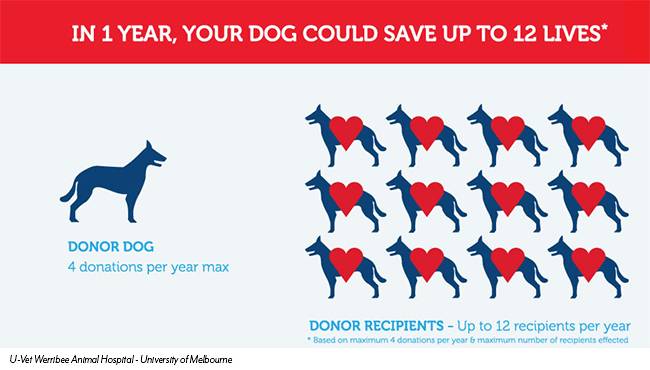Let’s talk blood!
Another first: The Canadian Animal Blood Bank started in Winnipeg
A few things are consistently true in veterinary medicine in Manitoba – one of these is that busy season kicks off when spring comes around. While in most general practices, this primarily means touching base about the wellness of a huge number of patients, and an influx of requests for tick and heartworm prevention (do you have yours yet?), it can also mean an influx of injuries, toxicities and disease acquired when we are out and about adventuring with our pets. As such, it’s a good time to be reminded that there is a constant need for blood, and in Manitoba, we are lucky to have access to the Canadian Animal Blood Bank (CABB).
The CABB is a not-for-profit organization with a pretty neat Winnipeg connection. It originated in Manitoba in 1996 when the very first donor clinic was held, although it was then known as the Manitoba Animal Blood Bank. They have since expanded to help meet national demand for transfusion products – from whole blood to plasma – although the main headquarters remains in Winnipeg! The blood bank also maintains a close working relationship with Red River College Polytechnic, where many of the wonderful local registered veterinary technologists have trained.
The need for these transfusion products has skyrocketed since the pandemic. In the spring and summer, as well as during holiday periods, there is a significant disconnect between the need for blood, which increases, and the number of donors, which decreases. Every day, animals require transfusion therapy for a variety of reasons. A single blood donation can help as many as three animals.
Just like in people, dogs have different blood types. CABB will check the blood-type of any potential donor. Dogs that are DEA1-negative are considered the universal donor. Certain breeds are more likely to be universal donors, including American Bulldogs, Great Pyrenese and Siberian Huskies. A full list can be found on the CABB website. If your dog is DEA1-negative, their blood is particularly precious! Although every blood donation is immensely helpful.
Of course, it takes a special canine to donate blood. First and foremost, as most donor sites are veterinary clinics, they shouldn’t be too afraid or wary in this environment, and they should be okay interacting with strangers. Donations aren’t painful but they do require the dog to lay still for a period of time. The CABB also has specific criteria for their donors including
- Dogs must be between the ages of one and eight years old.
- Dogs must weigh a minimum of 25kg.
- Dogs must be otherwise healthy.
- Dogs must be up to date on vaccines (or titers), and should be on yearly tick and heartworm preventatives.
Does your dog seem to fit the bill and have what it takes to be a hero? Clinics are always looking for new heroes! Contact your veterinarian to check on their vaccine status and inquire about upcoming donor clinics! You can also visit the CABB website to learn more.
Just before signing off, here’s another fun fact for you. Cats can be donors too! Though there is no central blood bank, emergency hospitals are often looking for help from our feline friends.
Until next time fellow paw-print loving friends!
Silver Heights Veterinary Hospital is proud to serve the Winnipeg region, and is located on Ness Avenue in St. James. Contact them at 204-504-5600 or visit their website at silverheightsvethospital.ca.


